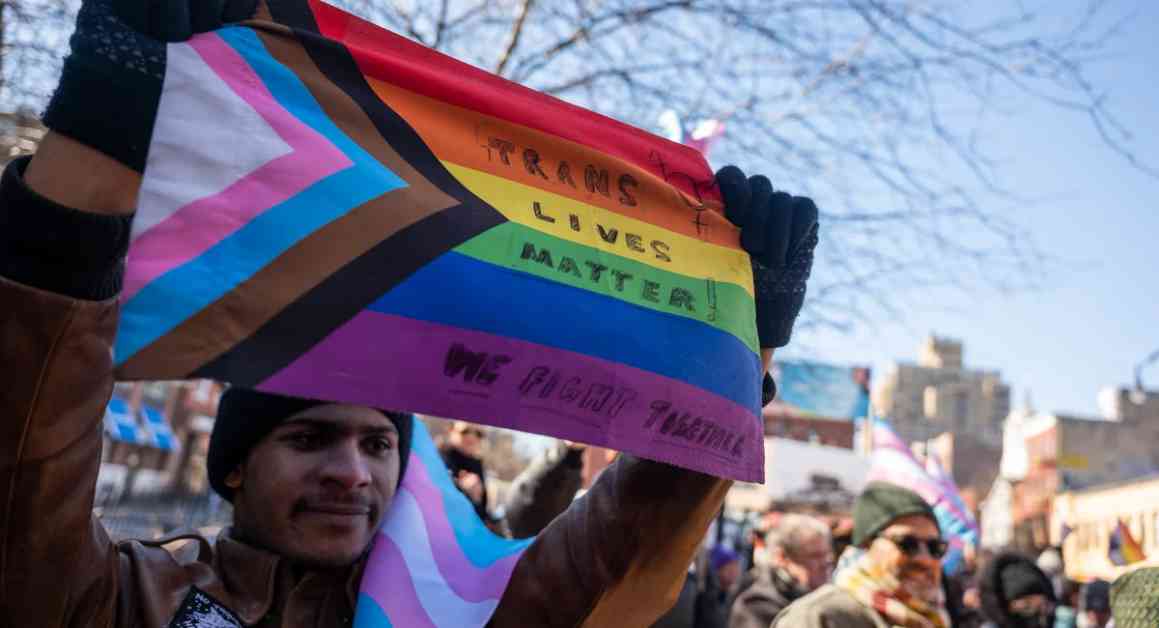New York City Reacts Swiftly to Trump’s Gender-Affirming Care Order
In a swift response to President Donald Trump’s recent executive order targeting gender-affirming care, New York lawmakers are taking action to protect transgender, nonbinary, and gender-nonconforming individuals’ access to essential medical treatment. The order, issued in the early days of Trump’s return to office, seeks to restrict access to gender-affirming medical care for individuals under the age of 19, labeling procedures such as puberty blockers, hormone therapy, and gender-affirming surgery as “chemical and surgical mutilation.” Additionally, the order blocks federal funding for research or education related to these treatments, sparking concern among New Yorkers, particularly trans youth and their families, who rely on these services.
Growing Concern in New York
Despite New York’s relatively progressive stance on gender-affirming care compared to other states, the recent executive order has caused alarm among the local LGBTQ+ community. Reports surfaced that NYU Langone had suspended gender-affirming treatments for certain adolescents following the order, prompting parents to rally in protest. While existing laws in New York protect LGBTQ+ individuals from health care discrimination, lawmakers are now drafting new legislation to further safeguard access to gender-affirming care.
State-Level Response
Assemblymember Linda Rosenthal of Manhattan wasted no time in responding to the executive order. She introduced a bill in Albany that would require Medicaid to cover gender-affirming care while expanding anti-discrimination protections for LGBTQ+ individuals. Rosenthal emphasized the urgency of the bill, stating, “I was anticipating some attack on people who are transgender. So once we found out, we drafted something to ensure that people who are transgender – or a gender identity different from what Trump considers allowable in this country – we worked fast.”
The City Council’s Initiatives
Meanwhile, members of the New York City Council, including those in the LGBTQ+ and progressive caucuses, have introduced a bill to strengthen legal protections for health care providers offering gender-affirming care. This legislation aims to penalize anyone who obstructs access to these services and would explicitly add gender-affirming care to a patient’s private right of action. Councilmember Shahana Hanif of Brooklyn, a lead sponsor of the bill, highlighted the importance of these protections in light of increasing anti-trans rhetoric and protests. She stated, “In this increasingly hostile climate, we must use every tool available to ensure trans patients can access the care they need.”
Broadening Support and Countering Trump’s Policies
The proposed bill is part of a larger package that includes expanding public outreach and health campaigns for transgender, nonbinary, and gender-nonconforming individuals in New York City. Additionally, there is a focus on providing resources for newly arrived migrants under the age of 24 who identify as transgender, nonbinary, or gender-nonconforming. Local lawmakers and activists have strongly condemned the recent removal of the words “transgender” and “queer” from the federal Stonewall National Monument’s official webpage, viewing it as part of a broader effort to erase trans identities from public recognition.
Looking Ahead
Councilmember Erik Bottcher of Manhattan anticipates legal challenges against these bills but emphasizes their importance in pushing back against Trump’s policies. Despite potential obstacles, lawmakers are determined to see these bills passed and enacted quickly. The city’s efforts to protect gender-affirming care for all individuals reflect a broader initiative to counter the impact of Trump’s executive order. Councilmember Tiffany Cabán of Queens reaffirmed New York’s commitment to defending transgender and gender-nonconforming individuals, stating, “We will defend our transgender and gender-nonconforming neighbors at all costs.”
In a positive development, federal courts have already intervened to block Trump’s executive order from taking effect in several states, including Washington, Minnesota, Oregon, and Colorado. These legal challenges are seen as crucial in shaping the future of the nation and the protection of LGBTQ+ rights. As New York continues to stand firm in its support for gender-affirming care, the resilience and unity of its lawmakers offer hope for a more inclusive and equitable future.












